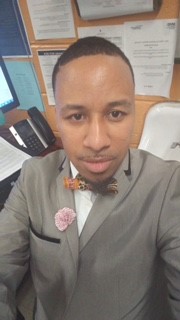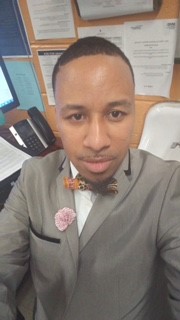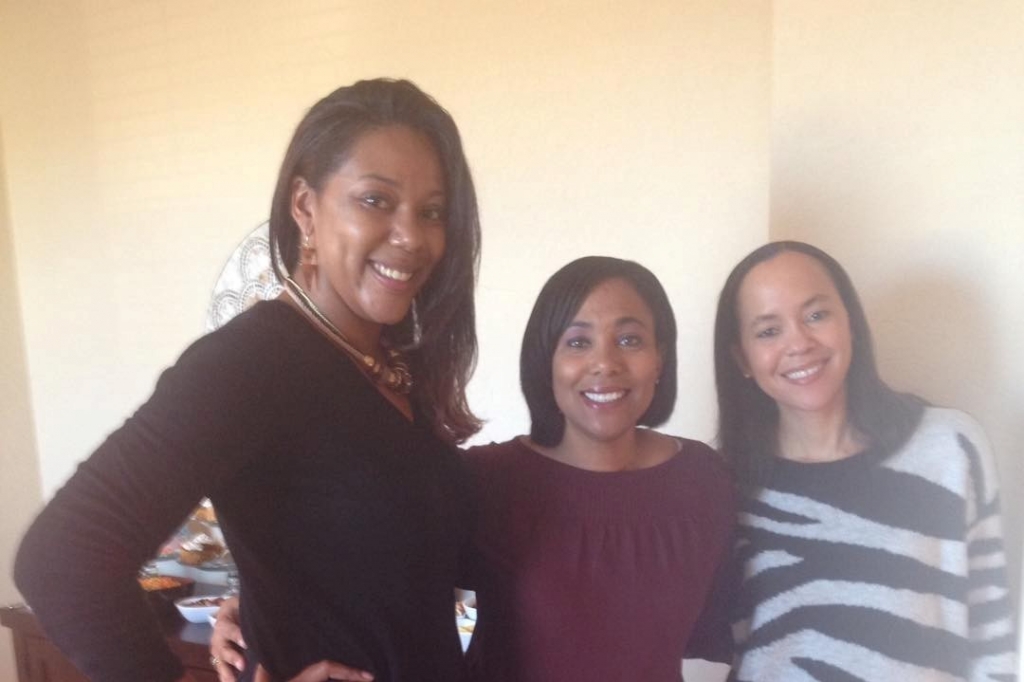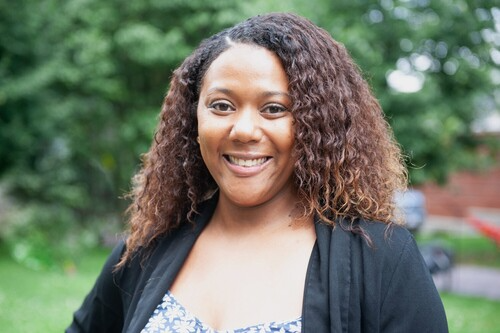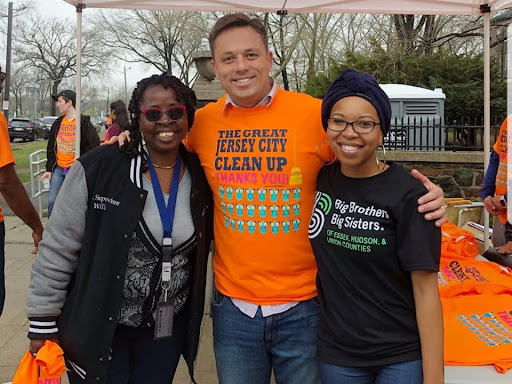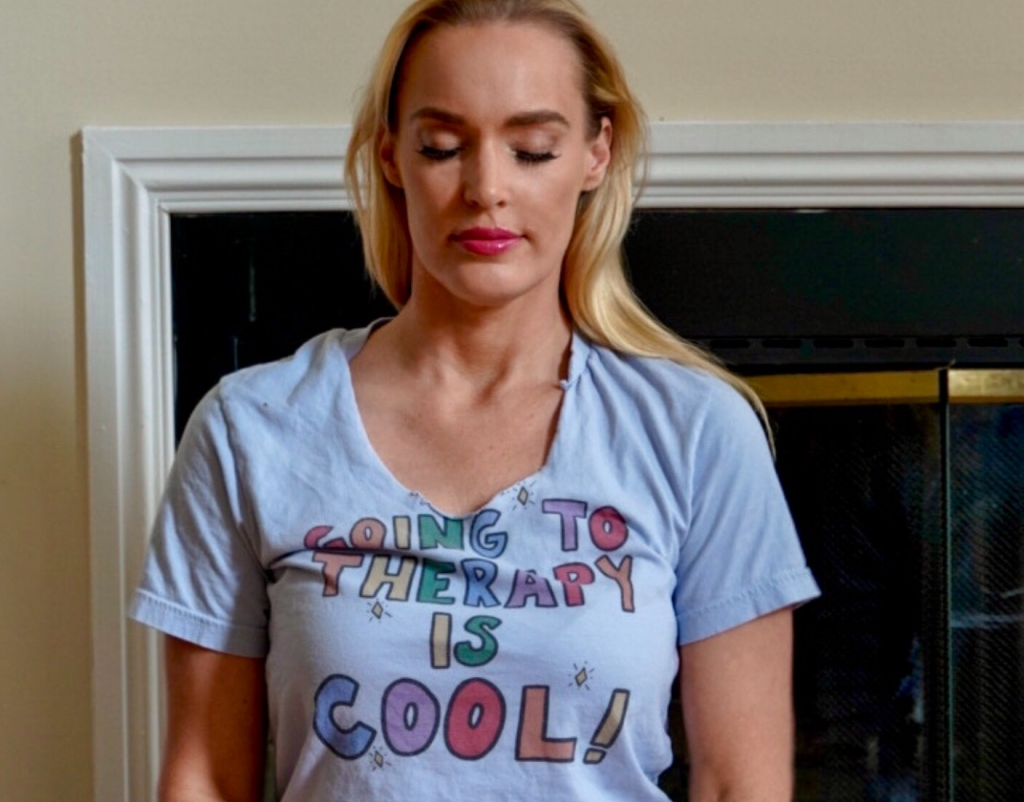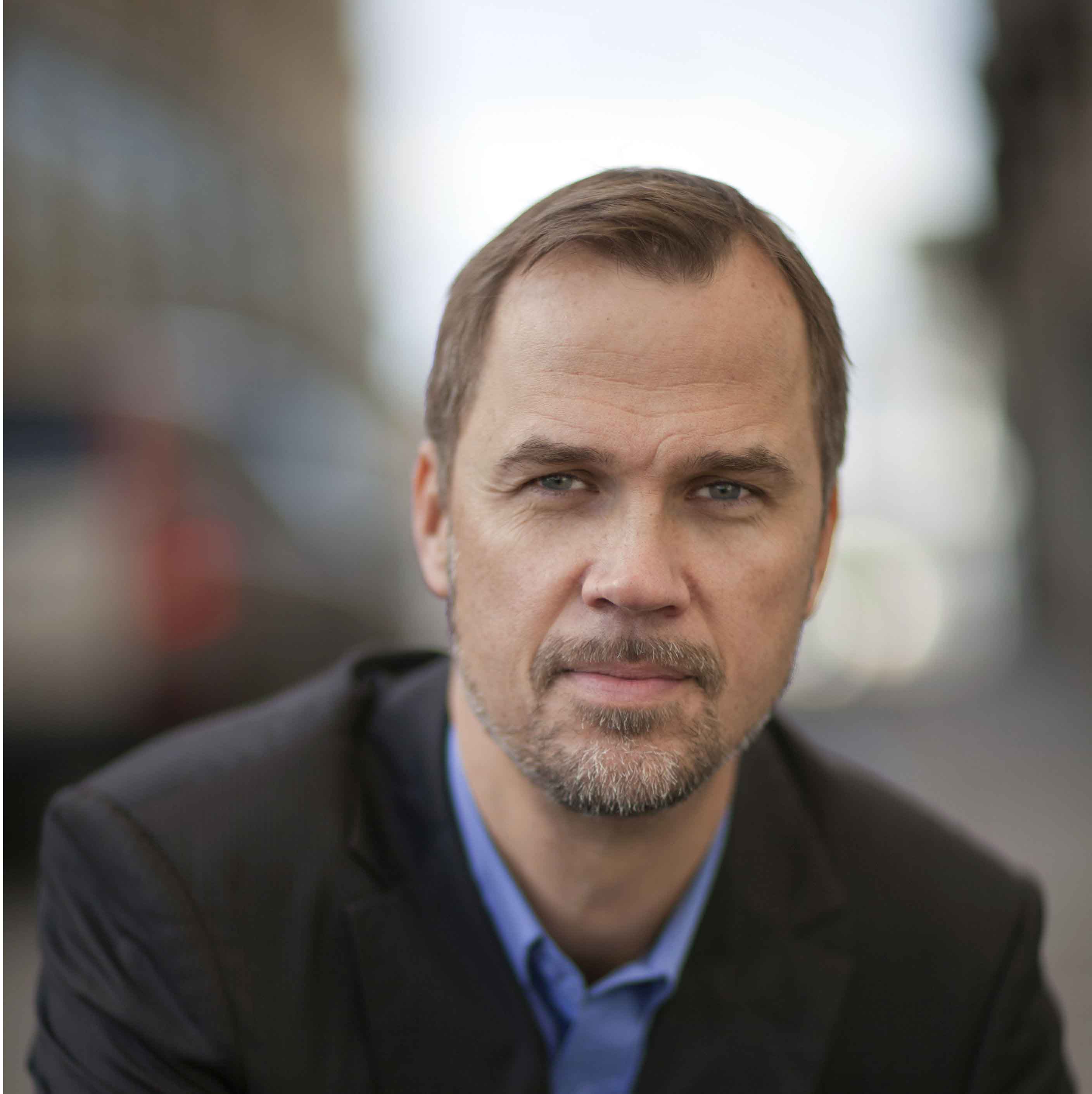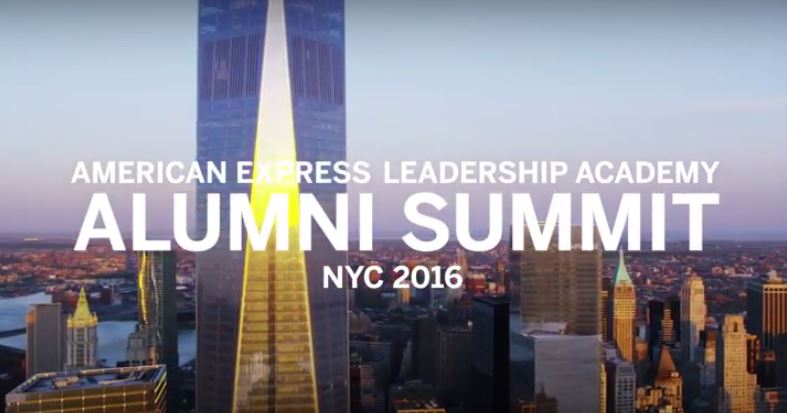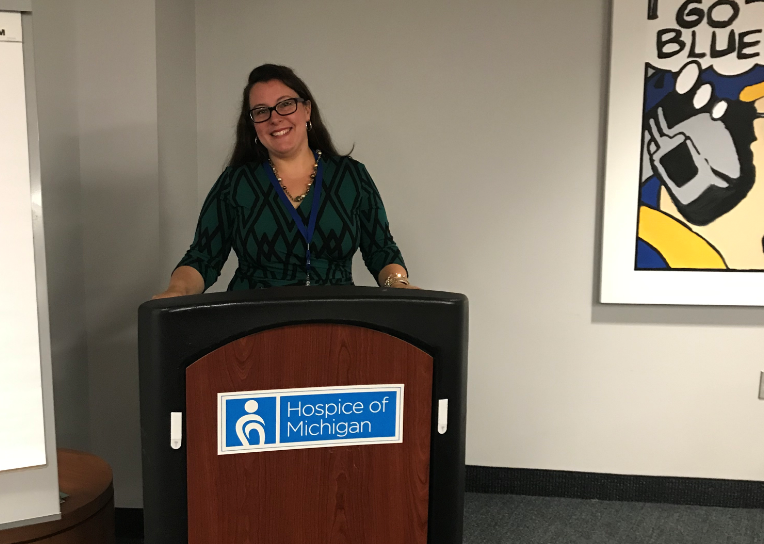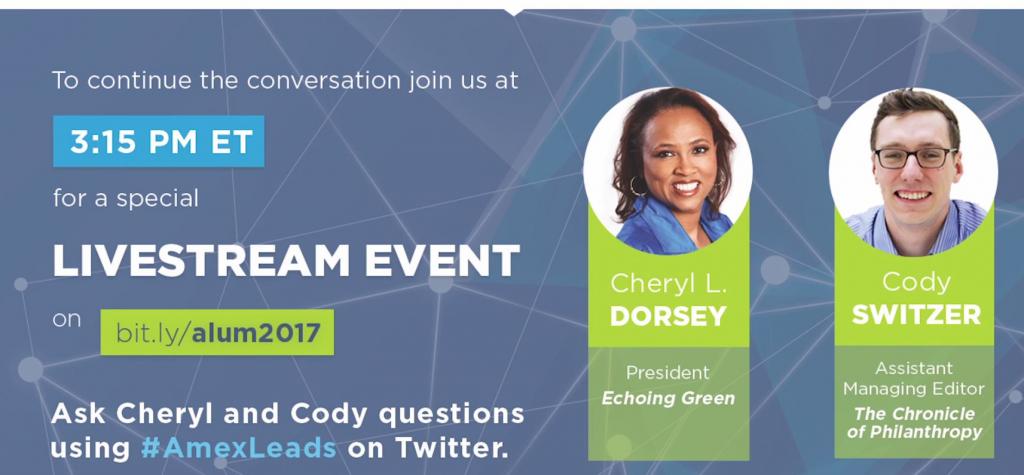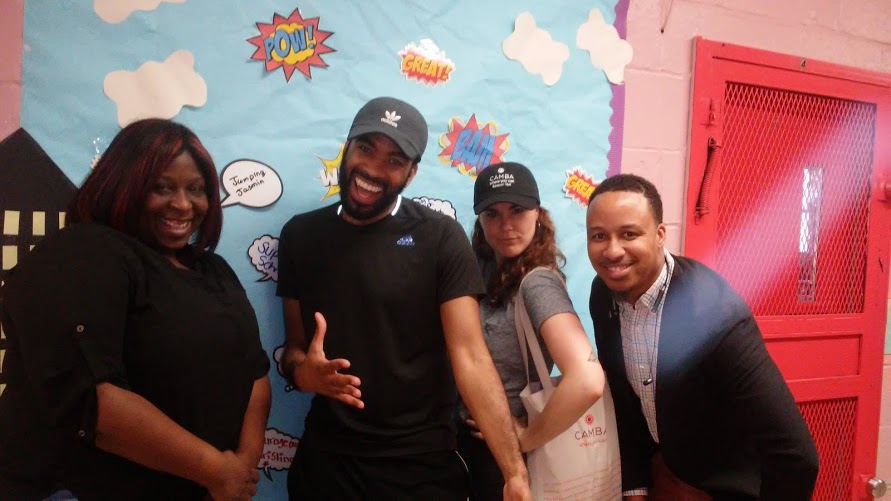
Q: Why did you decide to go into the nonprofit/social purpose sector?
A: I think that it was something that was born inside of me. I grew up in a very humble environment. Thankfully, we had a strong support system that consisted primarily of family members and our neighbors (community) which allowed my brother and sisters to not realize that there were gaps amongst our immediate family. I always believed that I would grow up and work for a major Fortune 500 company after college. Once I had the opportunity to work for the Vanguard Group in Charlotte, NC, I realized that finance and crunching numbers every day for the rest of my life did not totally fulfill me. I took a leap of faith and began my journey into the nonprofit world. It has been a happy marriage ever since!
Q: What keeps you here?
A: The work and the impact is what sustains me. Waking up and knowing that every day that you enter your space you are changing lives, impacting communities and building future leaders in your program participants motivates me to give my best each and every day.
Q: What is your favorite thing about your work day?
A: My favorite thing is that no two days are just alike. It is always changing. This works great for me because I get bored easily. So knowing that every day there is something “new” to do or another challenge to conquer is liberating!
Q: What impact or success are you most proud of?
A: There are so many. Two that stand out the most are the anti-violence production that we hosted at my Cornerstone program site, in partnership with Theatre of War which included famous C-list actors. The second one would be successful teen summit events that I coordinated for another nonprofit organization located in South Carolina.
Q: We all have our “failing forward” moments. Can you share a failure that in retrospect led to growth or learning?
A: Of course. I have learned so much while working in this field. I honestly feel that each day I learn something new. A few years ago, as a new Program Manager, I tried to manage multiple programs, activities, events and deadlines by myself. I had a great program staff, but I was afraid to delegate due to the fact that I wanted everything to be perfect. I missed a major deadline for a grant opportunity because I had overlooked the information. Had I trusted my staff and delegated responsibilities, I could have taken advantage of the grant. This experience taught me that great leaders not only “lead” but know how to properly delegate responsibilities. I’ve used this process ever since.
Q: In a few words, what most gets in the way of your ability to be the leader you want to be?
A: I don’t think that there is anything that prevents me from being a great leader. I know that there will always be a challenge or something that one must overcome to continue to reach new heights, but I think the key is for us to master ourselves and not accept a challenge or challenges as delays, but as opportunities to grow and learn.
Q: Which American Express Leadership Academy or partner program did you attend?
A: I attended and participated in the 2017-2018 PASE Emerging Leaders for Nonprofit Professionals program.
Q: How did the experience influence your approach as a leader?
A: My participation in the Emerging Leaders program cultivated my prior knowledge as a nonprofit professional. It allowed me to deepen my understanding of the nonprofit world, as well as build on the skills and experiences that I already had. I was able to network and establish relationships with other nonprofit professionals which will allow me strategic partnerships with other nonprofits and increase the overall impact of my organization and program.
Q: What was your greatest take away from the experience?
A: My greatest takeaway from the experience is that there are so many wonderful organizations and nonprofit leaders doing amazing work. We all just need to work together and form alliances so that we can continue to improve lives, strengthen communities, close achievement gaps, and build future leaders for tomorrow.
Q: What has been your biggest area of growth as a leader in the past year or two?
A: Having the confidence to allow my program staff to run the program but coaching them along the way so that they feel supported and appreciated.
“There is always something to learn in this industry so we have to remain teachable and coachable.”
Q: Why is it important that today’s nonprofit and social purpose leaders get professional development supports?
A: Professional development is very important. It allows you to learn how to do your job very well as well as introduces you to new skills and concepts to deepen your impact. There is always something to learn in this industry so we have to remain teachable and coachable so that we stay aware of new regulations, laws and trends that impact our programs.
Q: What is something that people don’t know about you from reading your resume?
A: I think I am a lot of fun to be around. I’m a huge fashion enthusiast and I’m a great cook. I appreciate life and being around good, positive people. I also recently launched my clothing brand—Young, Fearless and Black, with hopes to increase the number of positive images that children and people of color connect with as well as raise awareness of the social injustice that affects youth and young people of color.
Q: Please share your greatest piece of leadership advice for your social sector peers across the world.
A: In 2004, I had the pleasure of meeting the renowned Maya Angelou. She was on my college campus attending a Women in Leadership luncheon and a good friend of mine and I were invited to attend the luncheon as well. After meeting her, she told me to continue to work hard to achieve my goals. She told me that my personality and assertiveness would take me a very long way. I often think of that advice when I’m faced with a challenging day or when I need that extra push on those long days.
Q: Three words: If you had to name three specific abilities, skills or mindsets that you think every 21st century nonprofit leader needs, what would they be?
A: I would say the ability to think outside of the box, the willingness to learn and the ability to make a lasting impact by empowering their team, program participants and community.

